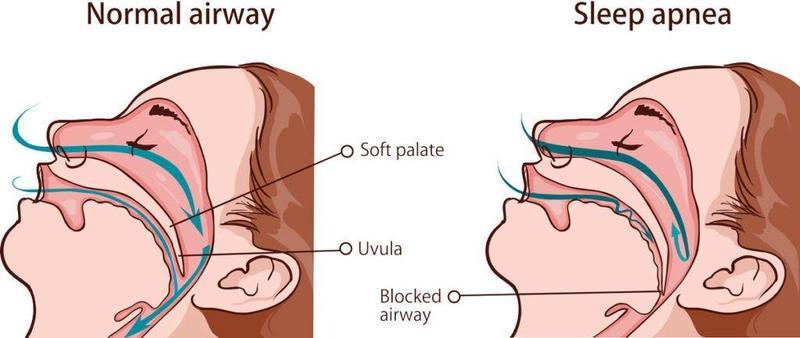Did you know that snoring can be a sign of a serious medical condition?
Did you know that snoring can be a sign of a serious medical condition?
Centers for Disease Control (CDC) data shows that 33 percent of Americans are sleep-deprived. You should get at least seven hours of sleep every night if you are between 18 and 60 years old, according to the CDC. Without due diligence, individuals are at risk for illnesses such as high blood pressure, diabetes, strokes, and heart disease. As well as causing physical exhaustion, lack of sleep often causes anxiety. Americans are often unable to sleep because of sleep apnea. In the event that it goes untreated, severe health conditions can develop.
Sleep Apnea: What Is It?
As you sleep, you may stop breathing periodically during sleep, which is known as sleep apnea. During the night they can occur more than 30 times an hour for a few seconds to a minute each. As a result, poor sleep is not only the result, but people are also deprived of essential oxygen, which can be dangerous. Sleep apnea is one of the most common sleep disorders in the United States, according to the Sleep Foundation. Women and children can also be affected, despite it being more common in men. Additionally, overweight and obese people are at greater risk for this disease.
Despite the fact that snoring is a symptom of sleep apnea, not everyone who snores has the disorder, which is why it's so important to get a sleep study to figure out the cause of your snoring. This type of consistent snoring, which is usually noticed by a family member or bed partner, may also accompany choking or gasping.
The following symptoms are also signs of sleep apnea: anxiety, depression, headaches in the morning, memory loss, irritability and excessive daytime sleepiness.
Can sleep apnea be dangerous?
Sleep apnea is obviously very inconvenient. Don't be shocked, it may be lethal, too. It can contribute to:
- DAYTIME SLEEPINESS
You don't get the restful sleep your body needs when you have sleep apnea. Consequently, falling asleep might be a danger when operating heavy machinery or driving. Consult an ear, nose, and throat doctors if you are consistently and severely drowsy while performing these important tasks. - DIABETES
Health problems are more likely to occur to people with diabetes. A poorly treated form of this disease can damage kidneys, nerves, cause blindness, and result in amputations. - HEART DISEASE
Heart disease is the top killer of Americans, and sleep apnea may lead to it. - STROKE
Strokes can cause motor and sensory problems as well as partial paralysis. You are more likely to suffer from a stroke if you have sleep apnea.
What is the treatment for sleep apnea?
A successful treatment method exists for sleep apnea. The CPAP machine is often used in this situation. Masks for this machine cover the nose and sometimes the mouth. You breathe normally and stop snoring when you wear a CPAP machine. A steady flow of oxygen keeps your throat open to prevent snoring.
Additional treatment options include:
- Change in lifestyle:
Sleep apnea may be caused by changes in your lifestyle, such as being overweight, smoking, or drinking alcohol. However, regular exercise and a nutritious diet aren't simply going to cure your sleep apnea, they also have numerous other health benefits. - Wear mouthguards:
A mouthguard allows you to breathe without obstruction by moving your tongue and jaw. - Treatment of nose and mouth structural problems:
Does your snoring need to be treated surgically? Problems with your mouth or nose, such as large tonsils, extra tissue in the back of the throat, nasal obstruction due to deviated septum, polyps, nasal allergies, an elongated uvula, could make this possible.
Some tips to help you sleep well
Sleep apnea patients, as well as everyone else, may find the tips below useful.
- avoid caffeine and other stimulants before bedtime;
- avoid drinking much alcohol;
- take a short afternoon nap if you can, but don't sleep for more than 30 minutes;
- be active regularly, but do not exercise before going to sleep;
- if you work in an office and are rarely outside, you should be in daylight during the day as much as possible;
- set a regular bedtime every night;
- do not use the screen on your cell phone, television, or computer before bed.
Our health is influenced greatly by sleep, so make sure to get plenty of it each night.
Be the first to post a message!
